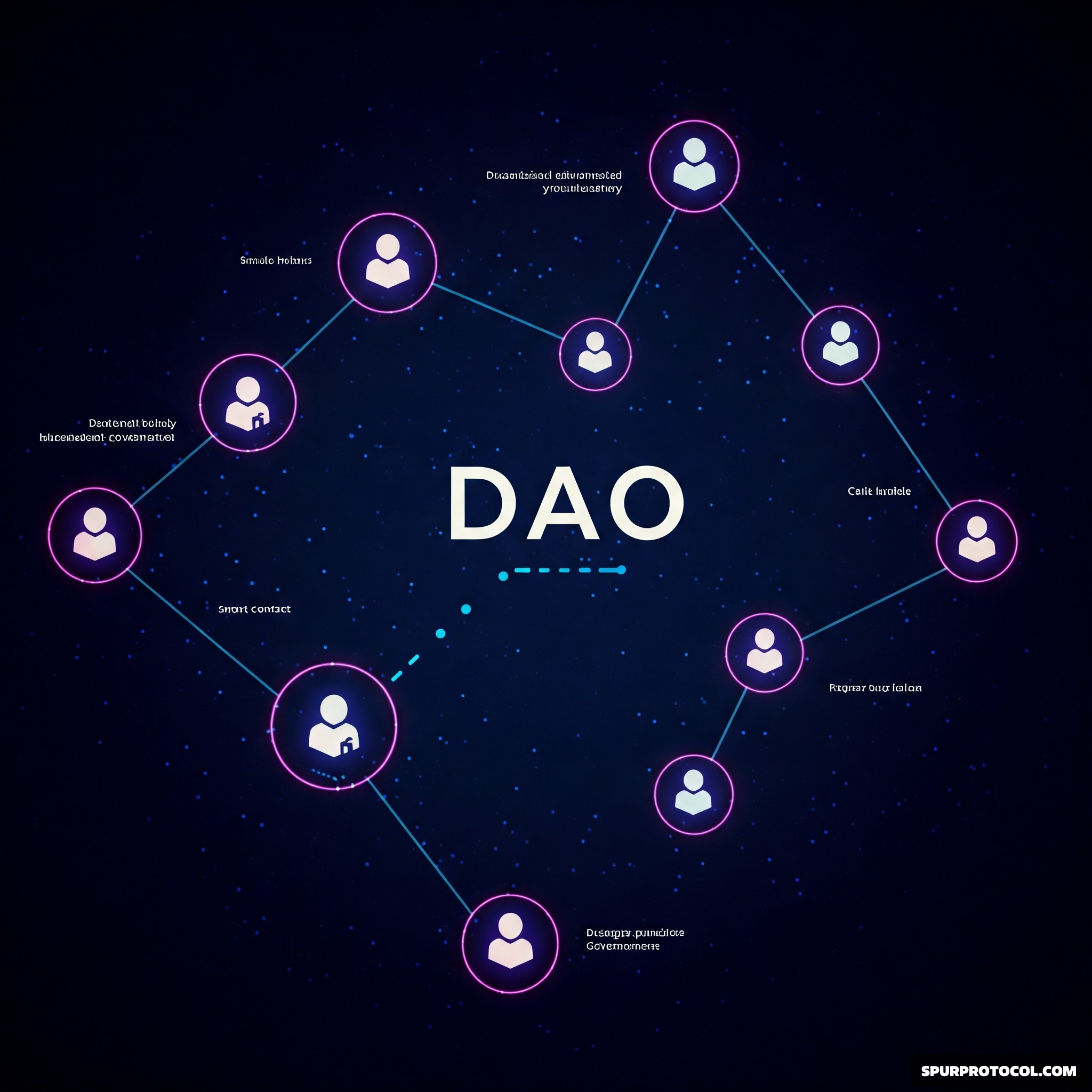Understanding DAO: The Future Of Decentralized Governance
The rise of blockchain technology has introduced innovative solutions for various industries, one of which is decentralized governance. Decentralized Autonomous Organizations (DAOs) are a groundbreaking concept that enables collective decision-making without traditional hierarchical management. This article will explore what a DAO is, how it works, its benefits, challenges, and its future potential.
Go Back

🕒 6:26 AM
📅 Mar 22, 2025
✍️ By Chidonlite
What is a DAO?
A Decentralized Autonomous Organization (DAO) is an organization governed by smart contracts and blockchain technology rather than a central authority. DAOs operate transparently, allowing members to participate in decision-making through a voting mechanism that is typically based on cryptocurrency tokens.
Unlike traditional organizations, which rely on executives and board members, DAOs enable a democratic, decentralized, and automated approach to governance. The rules of the DAO are encoded in smart contracts, ensuring that decisions are executed automatically based on majority votes.
How Does a DAO Work?
1. Smart Contracts
At the core of a DAO is a smart contract—a self-executing program that automates processes based on predefined conditions. These contracts govern everything from membership rules and voting procedures to fund management.
2. Token-Based Governance
DAOs usually issue governance tokens that give holders the right to vote on decisions. The weight of a vote is often determined by the number of tokens a member holds.
3. Decentralized Voting
Decisions in a DAO are made through on-chain voting, where members propose and vote on initiatives. Proposals that reach a certain approval threshold are automatically executed by the DAO's smart contract.
4. Treasury Management
Most DAOs manage a shared pool of funds, controlled collectively by token holders. The community decides how these funds are used, whether for investments, grants, or operational expenses.
Key Benefits of DAOs
1. Transparency – All transactions and decisions are recorded on a public blockchain, reducing the risk of fraud and corruption.
2. Decentralization – No single entity has control, ensuring a fair and democratic governance structure.
3. Efficiency – Automated smart contracts eliminate bureaucracy, enabling quick and secure decision-making.
4. Community-Driven – DAOs empower members to actively participate in governance and resource allocation.
Challenges and Risks of DAOs
Despite their potential, DAOs face several challenges:
Security Risks – Smart contract vulnerabilities can lead to hacks and fund losses, as seen in The DAO hack of 2016.
Governance Conflicts – Disagreements among members can slow decision-making or create internal divisions.
Legal Uncertainty – Many jurisdictions do not recognize DAOs as legal entities, making regulatory compliance difficult.
Whale Domination – Large token holders can influence decisions disproportionately, undermining decentralization.
Examples of Popular DAOs
MakerDAO – Manages the DAI stablecoin and allows users to participate in its governance.
Uniswap DAO – Governs the Uniswap decentralized exchange and its protocol upgrades.
Aave DAO – Manages the Aave lending platform through community governance.
The Future of DAOs
As blockchain technology evolves, DAOs are expected to play a significant role in various sectors, including finance, gaming, and governance. Innovations like AI-driven governance, improved smart contract security, and hybrid legal structures will likely shape the next generation of DAOs.
With increasing adoption and regulatory clarity, DAOs could revolutionize how organizations operate, making governance more transparent, efficient, and inclusive.
Conclusion
DAOs represent a new era of decentralized governance, empowering communities to make collective decisions without intermediaries. While challenges remain, continued innovation and regulatory developments will determine their long-term success. As blockchain adoption grows, DAOs could redefine how businesses and communities collaborate in the digital age.
